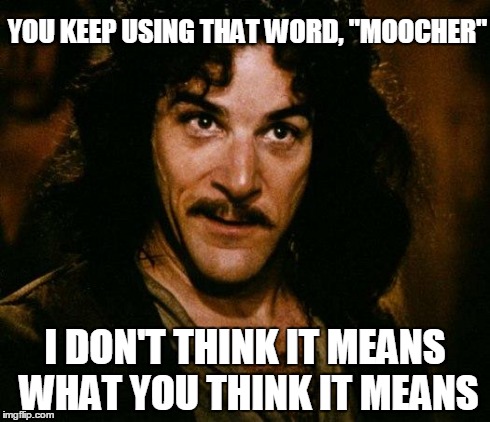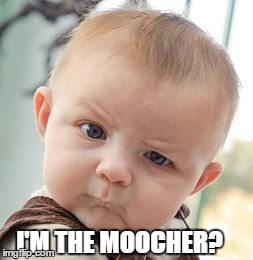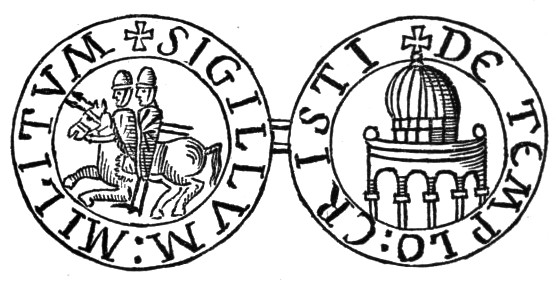I've been in Freemasonry for nearly a decade now. Since my first day as a Mason on a cold day in early February, I have been learning and growing, talking with other Masons online and in person to get a sense of what Masonry is. What I have learned from all these years is that Masonry is not one thing but many things.
I was feeling a little nostalgic so I started looking at old blogs that I used to frequent during my own early years as a blogger and arrived at Thomas Munkholt’s excellent
Grail Quest site. I have been reading a lot about the
Swedish Rite lately because 1) I really like it and 2) because I wish I could bring it to my jurisdiction. (That’s a subject for another day) I started reading comments and ran into this one by Chad Simpson:
“I read your comments regarding the concern of some Freemasons for the exclusively Christian nature of the Swedish Rite.
Having shared that concern at one time, I can only say that Freemasons at their best are traditionalists and at their worst are provincial.
Because of the emphasis that Freemasonry places on tradition, it is very easy for the untraveled or unread Freemason to believe that every Lodge is just like his own.
In fact, it is often a shock for a Brother when he finally realizes that Freemasonry is as diverse as are Freemasons themselves.
Though universality is an essential element of Freemasonry under most Grand Lodges, it is understandable why the Swedish Rite has developed as it has.
Though I enjoy studying the various forms of Freemasonry–variety being the spice of life after all–I must confess that I enjoy most a familiar dish.”
Source
I think the commenter is onto something. I think we, as Masons, even with our ability to travel, like to stay within the familiar. I find this most especially on sites like the
Freemasonry subreddit. Nearly every day, brothers will tell other brothers that what they are doing, whether it be mouth to ear ritual education or some other subject that is different from their own jurisdiction, is wrong. That’s right, just plain wrong.
It makes sense why these feelings exist. We are usually laboring in the quarries in our own jurisdiction. Sure, the random business trip may take us to a place where a lodge is actually meeting that night and that we have the good fortune to have remembered a business suit to be able to attend but, for the most part, we stay within the walls of our own Masonic experience.
I think the most common topic, the one that generates the most heat on nearly every forum I’ve ever been a member, is how religion, in particular, how Christianity, should fit within the Masonic system. Because of our history, the nature of religion (especially Christianity) and the Craft is very important to understanding development of the Craft degrees, the various side degrees, side orders, rites, and even the youth groups. It is very misunderstood as it varies among all the jurisdictions.
I think the best way to think about the varying viewpoints is to place them on a continuum. I choose a continuum because, it is most basic, using a continuum presupposes that all data in the set share some common theme, in this case, the fact that all of them are Masonic. On the left most side, we will place the Swedish Rite. On the far right side, we will place so-called “Adogmatic Freemasonry”, of which the Grand Orient of France would be an example. Between these two points, we can arrange the various rituals. Preston-Webb would be near the center as would Emulation and its many variants. In fact, most, including the Swedish Rite, would be clustered near each other.
My supposition is that wherever you are on the continuum, both based on your own experiences in Masonry as well as in which jurisdiction you were raised, will affect how you view other practices of Freemasonry. If you believe that God (or a Supreme Being) is an essential aspect of Freemasonry, any practice that does not recognize His importance in the work will not be considered regular in practice. And depending on how far you are away from another practice will likewise determine how uncomfortable you are with a Masonic practice. That’s why, at least in my opinion, many brothers within Preston-Webb will denounce Swedish Rite as unMasonic. And this is even more pronounced if that brother is not Christian. Of course, this always means that compared to Swedish Rite, some brothers may feel more comfortable with “Adogmatic Freemasonry” than to any practice that restricts membership to Christians. You’ll find statements like, “why can’t we use a blank book?” to be common with the compelling argument of having it represent all VSLs.
I point out this continuum because I think we, especially we Americans, get lost in the world. Most of us, including myself, have never traveled to a foreign location in our lives. It’s sad but true. Because of that, we become, just as the comment states above, provincial in our way of thinking and we shut ourselves off from the wider Masonic world. Universality within Freemasonry was not a given and even Anderson backed away from perfect universality when he released his revised 1738 Constitution. It’s difficult. Universality is just one of the goals of Freemasonry and it wasn’t, and has never been, universally accepted.
The Antients disdained the Moderns and that grand body’s rejection of nearly all Christian allusions. Even at the merger, the Antients felt it important to insert language acknowledging the chivalric degrees practiced by so many Antient lodges and chapters; "[t]his article is not intended to prevent any Lodge or Chapter from holding meetings in any of the degrees of Chivalry, according to the Constitution of said Order." It’s a tug of war match between those that seek to acknowledge the Christian origins of the degrees and those that would like to remove them for a new universal philosophy. And that tug of war continues.
These feelings manifest themselves within a jurisdiction. The most apparent example in my jurisdiction is Commandery. Commandery is decidedly Christian and has a long history. Yet, many brothers will denounce it as unMasonic, placing it somewhere between Freemasonry that allows women in and whatever Leo Taxil had in mind when he wrote his hoax. It’s one of the few bodies that I've seen actively derided. I used to be bothered by this but then I thought of the continuum.
I don’t find the Commandery or Swedish Rite or Rectified Scottish Rite as offensive because I am a Christian. Yet, I can also understand why some Masons may have a problem with it. It’s restrictive by its very content. The Crusades were a destructive series of events in the Levant. Yet, the chivalric degrees are also very much Masonic. They are both historically and traditionally relevant within the body of Masonry.
Masonry is vast. If our lodges symbolically extend into the deepest core of the Earth all the way into the Heavens, then it will most assuredly pick up all those practices and styles. Knowing where you are on the continuum is the first step in seeing the wider world, understanding which practices make you comfortable, which practices or styles make you uncomfortable and ultimately understanding why. For me, I cannot accept Adogmatic Freemasonry as regular because I feel that Masonry is a Deity adoration society. By first knowing where I am on the continuum, I am forced to articulate reasons for why I don’t like a practice, in this case, the removal of God from our ceremonies. It also gives perspective as to why another person may accept some practice with which I don’t agree.
I don't think we need to accept every practice in Masonry but we should at least know why a practice, qualification, or some other Masonic tic that differs from our own may not be totally unMasonic. The Commandery exists, it has Masonic roots, and even though it restricts membership to only those adhering to the Christian religion, I would consider it Masonic. The Rose Croix, as it’s called in England, only accepts Trinitarian Christians, unlike its counterparts in the United States; I would also call it Masonic. The Grand Orient de France removed mention of the Great Architect of the Universe from its constitution; I would consider that practice to be irregular but I think analyzing the reason why Frédéric Desmons, a Calvinist Priest, instigated its removal is important.
Masonry is vast. Yet, within its vastness, it’s still held to the aforementioned continuum. Try for yourself. I've found that by arranging Masonic rituals in this way, I've learned tolerance for all of Masonry’s windings.
What do you think? Where are you on the continuum? Where is your Grand Lodge on the continuum? Does the continuum help you? Leave a comment below.









































